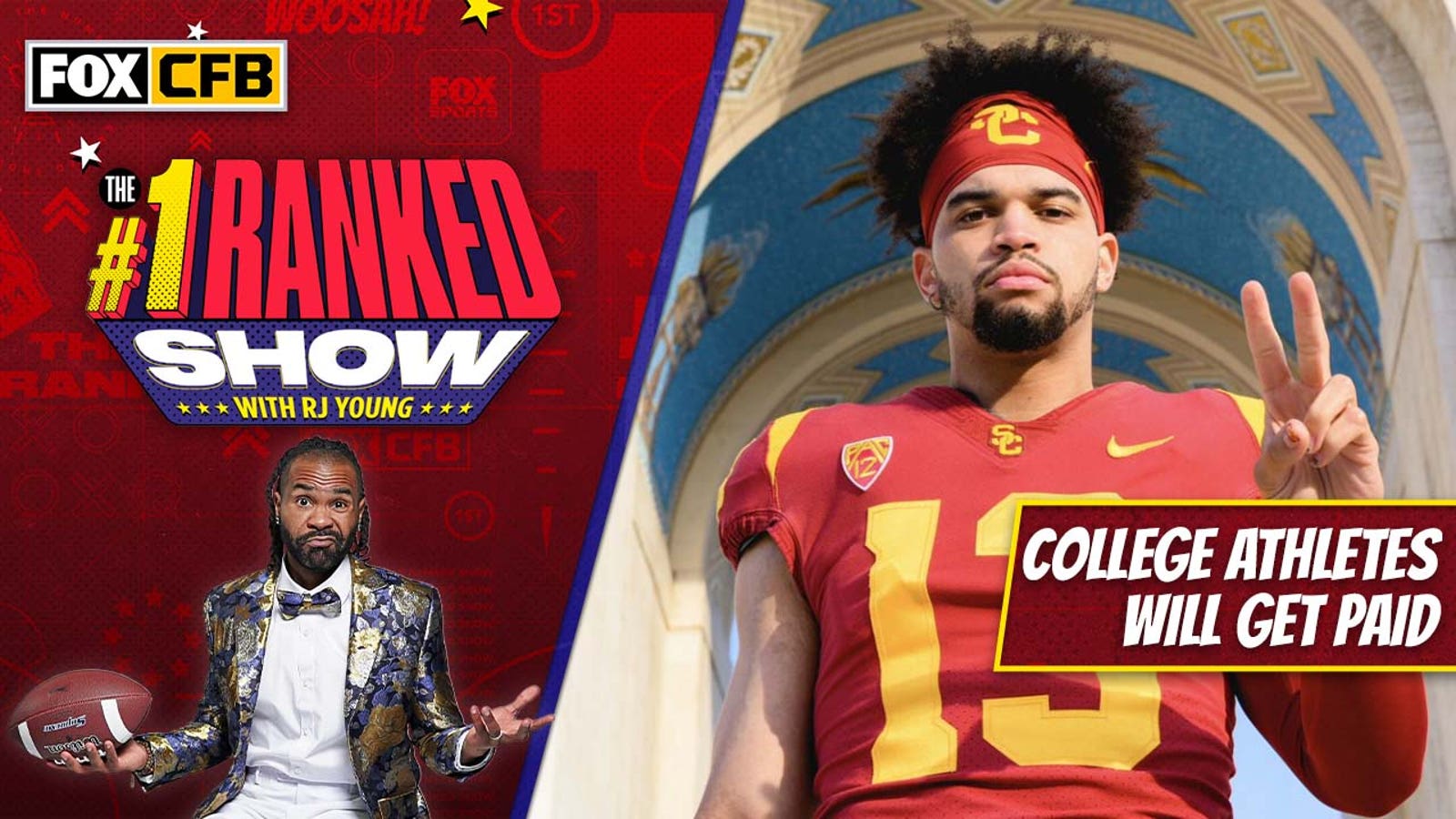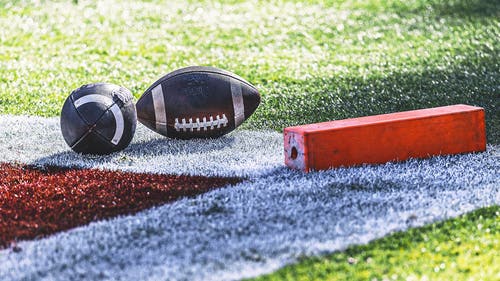
Could college athletes soon be paid by schools?
By RJ Young
FOX Sports College Football Writer
This is a Nitty beat. This ain't no laffy-taffy. This ain't no bubble gum.
This is a labor law issue that could be headed toward your school paying players, and that’s my favorite trap song. The last two words of the title are simply "Pay Me."
Since transferring from Oklahoma to USC earlier this month, star quarterback Caleb Williams has announced name, image and likeness deals with brand names such as Beats by Dre and Fanatics. Williams even appeared on "Good Morning America" to talk about his decision to transfer and how he is adapting to becoming one of the biggest names in the sport.
If this sounds a lot like the kind of media tour and deal-making that go on at the professional level, that’s because it is, according to the National College Players Association.
RJ Young breaks down the NCAA’s labor dispute
You can watch the "The No. 1 Ranked Show with RJ Young" on YouTube or subscribe on podcast platforms, including Apple Podcasts.
On Feb. 7, the NCPA filed a complaint with the National Labor Relations Board claiming USC, UCLA and the Pac-12 conference as employers are restricting the rights of their employees (college athletes) and that those employees have right to compensation. The College Basketball Players Association filed a similar complaint with the NLRB in November.
The NCAA also is in litigation in the Third Circuit Court of Appeals in Johnson v. NCAA. The issue in that case is "whether Division I student-athletes can be employees of the colleges and universities they attend for purposes of the Fair Labor Standards Act solely by virtue of their participation in interscholastic athletics."
In Johnson, the NCAA has leaned on a 2019 precedent set in Dawson v. NCAA, in which the court found that Pac-12 football players were not employees entitled to compensation under the Fair Labor Standards Act because they had no expectation to be compensated and that the NCAA was not an employer of college athletes but, rather, a regulating agency for student-athletes.
The NCPA contends — as have many — that college athletes have been mislabeled as "student-athletes" instead of players. As players, the NCPA argues college athletes have been subjected to "unlawful prohibitions on protected employee speech."
"College athletes see the definition of employee under labor law," NCPA president Ramogi Huma said in a statement. "They are highly skilled in their sport, paid scholarships and stipends to perform athletic services, and they perform their work under extensive control of their employer. These athletes deserve every right afforded to them under labor laws — just like other hard-working Americans."
If the NCPA’s complaint is successful, the NCAA would no longer be allowed to limit the amount of money individual schools could pay their athletes.
Last summer in Alston v. NCAA, a Supreme Court case regarding NCAA rules that limit educational benefits for college players, the Court sided with the athletes. Writing for the majority, Justice Neil Gorsuch stated that the NCAA "seeks immunity from the normal operation of the antitrust laws." Justice Gorsuch said the NCAA has no grounds to justify exemption from antitrust laws through claiming to uphold amateurism, the idea that NCAA rules are reasonable and necessary to distinguish college sports from professional sports.
In a concurring opinion, Justice Brett Kavanaugh added: "In particular, it is highly questionable whether the NCAA and its member colleges can justify not paying student athletes a fair share of the revenues on the circular theory that the defining characteristic of college sports is that the colleges do not pay student athletes."
Justice Kavanaugh also suggested NCAA members and players "engage in collective bargaining … to provide student athletes a fairer share of the revenues that they generate for their colleges, akin to how professional football and basketball players have negotiated for a share of league revenues."
Following that opinion, NLRB general counsel Jennifer Abruzzo published a Sept. 29 memo stating, "the policies underlying the National Labor Relations Act, Board law, and the common law fully support the conclusion that certain players at academic institutions are statutory employees, who have the right to act collectively to improve their terms and conditions of employment."
These comments from the NLRB have been interpreted by some in the legal community as an invitation to test the NCAA member institutions' underlying commitment to refuse to financially compensate their players. And it seems like the Supreme Court might pick up the case if such a case made its way to the high court.
I find this all tantalizing, especially with Major League Baseball in the midst of a labor dispute that has evolved into a lockout 50 years after the MLB Players Association became the first major sports union to go on strike.
The players were spurred on by Curt Flood, who famously challenged MLB's reserve clause in court. That case eventually went to the Supreme Court. Flood lost, but three years later, in 1975, an arbitrator struck down the reserve clause in the cases of two pitchers, leading to MLB free agency.
It didn't ruin the game.
Fifty years later, what’s striking to me is that many people assume that paying college athletes to play for universities would ruin college sports. These suits and complaints working their way through legal channels serve to not only test that wrongheaded notion but also outright disprove it.
Something is going to give. Unions will form. Collective bargaining agreements will be signed.
What’s clear is that it’s not a matter of if anymore. It's a matter of when universities will finally have to pay their college athletes a fair wage. The future is paying college athletes to compete.
RJ Young is a national college football writer and analyst for FOX Sports and the host of the podcast "The No. 1 Ranked Show with RJ Young." Follow him on Twitter at @RJ_Young, and subscribe to "The RJ Young Show" on YouTube. He is not on a StepMill.











